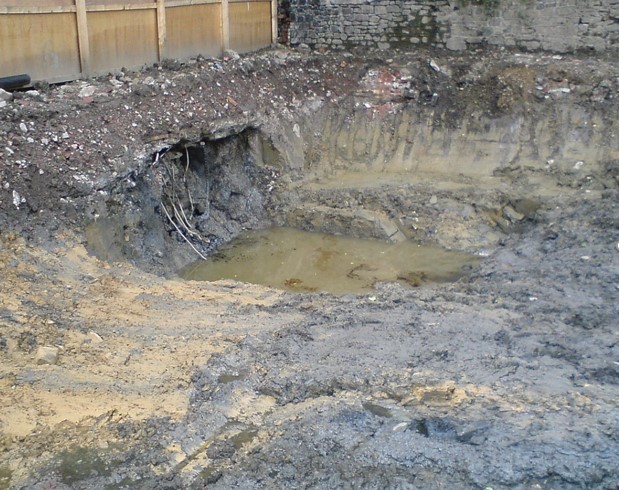
What is Contaminated Soil While Excavating?
Contaminated soil is soil that contains a toxic chemical compound. It does not encourage the growth of vegetation or plants. In most cases, the substance is accidentally spilled into the soil. Pesticides or other substances can contaminate soil. Those who live near contaminated soil may suffer serious consequences. Continue reading to learn more.
What constitutes contaminated soil? Contaminated dirt is soil that has been tested to determine if it contains harmful substances or chemicals. This does not make the soil useless. You can use soil remediation to remove toxic soil and clean it up again.
Oil spills can cause soil contamination. Cleanup services may be needed. Oil can spread quickly, damaging plants and animals. Oil can seep into the groundwater used for irrigation, and then end up in surface water of lakes and oceans.
Understanding the causes of soil contamination and preventing it in the United States is possible.
What causes soil contamination?
The main source of soil contamination is hydrocarbon PAHS. These chemicals are found in crude oil and gasoline. These hazardous wastes seep through the soil and can cause contamination which doesn’t wash away with rain. Soil remediation is necessary to make soil uncontaminated and clean.
Pesticides
What constitutes contaminated soil? The soil is contaminated when pesticides are used to cultivate crops. Pesticides may seep into the soil and contaminate it. In many countries, pesticides are heavily regulated.
Pesticides can be used to protect crops from pests that could destroy them during their growth. Pesticides can be toxic to soil, even though they are effective at keeping insects away. Reduce pesticides to ensure soil is able to grow more crops.
Herbicides
Herbicides are also used to prevent weeds from destroying the growth of crops. The amount of herbicides used is very important. What constitutes contaminated soil? Herbicides in large quantities can cause soil contamination.
Waste disposal: How to dispose of it properly
Contaminated soil can be caused by hazardous materials that are illegally or accidentally poured on the soil. Contaminated areas can negatively affect the environment and the nearby residents.
Be on the lookout for signs that indicate improper disposal. Report any illegal activities in the area of oil or gasoline disposal. If you do not want to dispose of oil, bring it to a mechanic’s shop or recycling center. Oil should never be thrown away in the trash, even if it is kept in an airtight container.
Health Effects
Hydrocarbons can enter soil in many ways. This doesn’t only affect the growth of plants. Hydrocarbons can enter soil in many different ways.
- Drinking Water Contaminated: A spilled oil can get into the pipes and contaminate the water. Drink only water that is free of oily sheen. Test your water immediately to determine if it is contaminated.
- You may be breathing toxic fumes if hydrocarbons exist in your soil. This could be gas and oil or contaminants that release a toxic gas. You should note these smells and not ignore them. Look for the cause of the problem, and then take action. What constitutes contaminated soil? It is possible for you to tell if the soil in your yard has a bad smell.
Health problems can be caused by inhaling or ingesting chemicals, such as oil or gasoline. Oil or gasoline can also contaminate the soil. What constitutes contaminated soil? Contaminated dirt is soil that has been infused with industrial substances. It is a health hazard.
This post was written by Tanner Brown. Tanner is the Owner and operator of Greenbar Excavation. Greenbar Excavation is a fully licensed, insured, and accredited Excavation company based in Prineville, Oregon. Greenbar Excavation is one of the top Excavation companies in Central Oregon. Don’t look further, go with the company with your best interest in mind! Click Here for more information.
